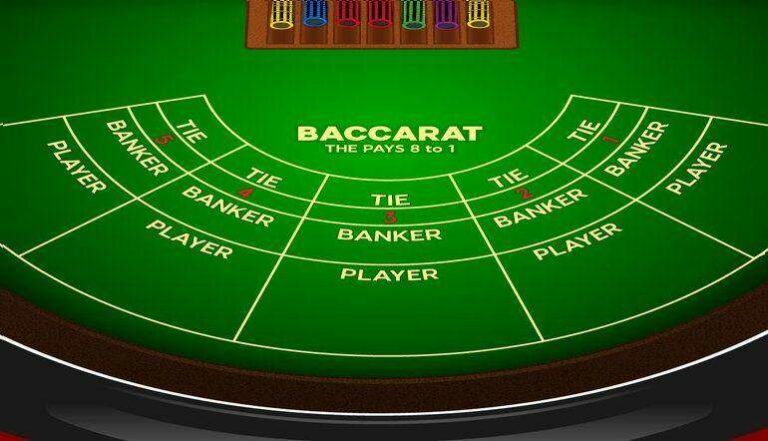Poker, the timeless card game that has captivated players worldwide for centuries, is a remarkable interplay of strategy, skill, and fortune. In this intriguing game, players vie against one another, betting on the value of their hand relative to their opponents’. While luck plays a significant role in the initial dealing of cards, it is a player’s strategic decision-making, reading abilities, and betting strategies that truly determine their success in the long run.
Understanding the Basics of Poker
The first step to understanding Poker as a confluence of strategy, skill, and fortune is to grasp the basics of the game itself. It’s crucial to learn the rules and the gameplay before delving into the deeper aspects of this sophisticated card game.
Poker is a game of incomplete information, where players bet on the value of their hand relative to the hands of their opponents. Each player is dealt a certain number of private cards (known as “hole cards”), and a set of public cards are dealt face up in the middle of the table, known as “community cards.”
In the most popular form, Texas Hold’em, players receive two hole cards, and five community cards are dealt. Through four rounds of betting – pre-flop, flop, turn, and river – players strive to make the best five-card combination. It’s within these rounds where the elements of luck and skill intertwine.
The initial dealing of cards falls within the realm of luck. Each player has no control over their cards; the odds of getting a specific hand are based on chance. However, how a player manages their hand can drastically swing the game’s outcome, introducing the element of skill.
Different styles of Poker, such as Omaha, Seven-Card Stud, and others, have unique rules and number of hole and community cards, thus offering varied game dynamics. For instance, in Omaha, players receive four-hole cards but can only use two to form their final hand. The additional cards increase the potential combinations and complexity, thus amplifying the role of skill in predicting opponents’ hands.
Though dictated by certain rules, the basics of Poker strategy leave ample room for both elements of fortune (the dealt cards) and skill (strategic play and decision-making). These elements lay the foundation for Poker, a game where strategy, skill, and fortune converge.
Dissecting the Skill Element in Poker
In the realm of Poker, a player’s strategic acumen can often determine between a win or a loss. While the dealing of the cards may be subject to chance, the way a player navigates through the game is often the result of deliberate and calculated strategies.
Bluffing is one such strategic maneuver central to the game of Poker. A good bluffer can convince their opponents of the strength or weakness of their hand, manipulating their betting behavior. For instance, a player with a weak hand might bluff by making large bets, leading others to believe they have a strong hand and causing them to fold. On the other hand, a player with a strong hand might bluff by betting modestly, luring other players into the pot.
Another critical skill in Poker is the ability to read opponents. Experienced players are adept at picking up subtle ‘tells’ or changes in behavior that can give away the strength of an opponent’s hand. A player’s posture, facial expressions, betting patterns, and conversation can all provide valuable insights. Daniel Negreanu, a professional poker player, is known for his remarkable ability to accurately predict opponents’ hands accurately, often attributing his success to his sharp reading skills.
A sound betting strategy is also fundamental to Poker. Decisions about when to bet, call, raise, or fold can differentiate between losing or accumulating chips. Skilled players know when to be aggressive and conservative based on the strength of their hand, the behavior of their opponents, and their position at the table.
Bankroll management is another important skill for Poker players. Knowing how much to stake on a given hand and understanding the potential for loss is key to long-term success. A player who bets their entire bankroll on a single hand may win big, but they also risk losing everything. Successful players like Chris Ferguson have showcased effective bankroll management, allowing them to stay in the game despite losing streaks.
By dissecting these skills – bluffing, reading opponents, betting strategy, and bankroll management – one begins to see how Poker is less a game of random luck and more a complex, strategic battle. These skills have been exemplified by professional Poker players who consistently perform well in high-stakes games and tournaments. This skill element positions Poker as a fascinating confluence of strategy, skill, and fortune.
Evaluating the Luck Component in Poker
While Poker undeniably involves a significant level of skill, the game also has an inherent element of luck, which can heavily influence the outcome, especially in the short term. Understanding this balance is crucial to interpreting Poker as a blend of strategy, skill, and fortune.
Firstly, getting good hole cards is purely a matter of chance. In Texas Hold’em, the likelihood of getting a specific hand, such as a pair of aces (the best possible starting hand), is approximately 1 in 221. Similarly, the community cards that are dealt on the “flop,” “turn,” and “river” can significantly alter the strength of a player’s hand, and this, too, is a matter of luck. For example, having the fourth card of the same suit turn up on the river to complete a flush is entirely out of the player’s control.
Variance and ‘bad beats’ are other aspects that underline the role of luck in Poker. Variance refers to the ups and downs, the winning and losing streaks, that are inherent in the game. A player might get a series of strong hands, leading to a winning streak (positive variance), or experience a ‘bad beat’ where a strong hand is beaten by an even stronger one, often against the odds. For instance, if a player goes all-in with a strong hand, say a flush, but their opponent draws to a full house on the river, that’s a classic example of a ‘bad beat.’
Luck can heavily influence a player’s success in Poker in the short term. A novice player might win a hand against a seasoned professional simply because they were dealt better cards. However, the luck factor evens out over the long term, and skill becomes the predominant factor in determining consistent success. This concept is demonstrated in the careers of professional players like Phil Ivey and Vanessa Selbst, who, despite the inevitable influence of luck, have demonstrated sustained success over years of play, evidencing that Poker is not solely a game of chance.
While luck does play a role in Poker, especially in the short term, its influence is mitigated over the long run. Ultimately, Poker is a game that beautifully marries elements of strategy, skill, and fortune, where understanding and accepting the role of luck can be as much a part of a winning strategy as applying skill.
The Interplay of Skill and Fortune in Poker
The unique allure of Poker lies in the dynamic interplay of skill and fortune. Both elements coexist in the game, creating continuous tension and making each hand a fresh exercise in decision-making and chance.
A player might win a few hands in the short term due to pure luck, such as being dealt a royal flush or hitting a full house on the river. However, consistently successful Poker play over the long run requires a solid grasp of strategy and a keen understanding of the game’s nuances.
For instance, a player dealt a weak hand can utilize skill to either bluff their way to winning the pot or minimize their losses. Conversely, a player dealt a strong hand must also use skill to maximize their winnings, as even the best hand can be wasted with poor strategy.
An interesting example of the interplay of skill and fortune can be seen in the career of professional player Phil Hellmuth. Hellmuth, known for his sometimes volatile behavior at the table, holds the record for the most World Series of Poker bracelets won. Despite occasionally being on the receiving end of bad beats and experiencing periods of negative variance, Hellmuth’s consistent success over decades demonstrates that skill is a critical factor in long-term Poker success.
Another case study is Chris Moneymaker’s 2003 World Series of Poker (WSOP) Main Event victory. Moneymaker, an amateur player, won his entry into the tournament through a $86 online satellite tournament. While his victory was partly due to some extremely fortunate hands, his success was not purely a product of luck. Throughout the tournament, Moneymaker demonstrated a solid grasp of Poker strategy and a knack for reading his opponents. His story perfectly encapsulates how luck and skill can converge in a Poker game.
Poker is considered a game of skill over the long run because, while any single hand might be won or lost due to luck, a player’s overall success correlates strongly with their skill level. Over time, the effects of luck tend to even out, and the players who consistently make the best decisions are the ones who come out ahead.
Therefore, the interaction between luck and skill makes Poker so fascinating. It’s a game where the turn of a card can decide a hand, but the application of strategic acumen, over time, determines overall success. This complex blend makes Poker a captivating confluence of strategy, skill, and fortune.
Odds vs Skill vs Luck
The role of odds in Poker provides an intriguing twist to the ongoing debate of skill vs luck. Understanding and calculating odds is a crucial skill for any Poker player, tying together the elements of luck (the cards you’re dealt), skill (the strategic decisions you make), and the intrinsic probabilities in the game.
In Poker, there are two main types of odds to consider: card odds and pot odds. Card odds, also known as ‘outs,’ refer to the probability of drawing a card that will give you a winning hand based on poker hand rankings. For example, if you are holding four cards of the same suit (a drawing hand for a flush) after the turn in Texas Hold’em, 9 out of 46 unknown cards can complete your flush on the river. The odds, in this case, are approximately 4:1 against.
Pot odds refer to the ratio of the current size of the pot to the cost of a contemplated call. If the pot odds are greater than the card odds, a call is statistically profitable in the long run, introducing the element of skill in decision-making.
Another important concept is Expected Value (EV). This mathematical concept calculates the average result of a given play if it were to be repeated multiple times. Players can make decisions that have a positive expected value (+EV), which means that this play will, on average, make them win chips, or a negative expected value (-EV), meaning the play will, on average, cost them chips.
An example of EV at work could be a simple all-in situation pre-flop in Texas Hold’em. If a player goes all-in with Ace-King against an opponent with two Queens, the Queens are a slight favorite to win the hand (approximately 57% to 43%). However, if the pot is large enough compared to the amount the player with Ace-King needs to call, calling could still have a positive expected value, even though they’re statistically more likely to lose the hand.
Finally, variance, a concept that measures the degree to which outcomes deviate from the average, also plays a significant role in the skill vs luck debate. Even though a player might make +EV decisions consistently, they can still experience negative results due to variance. This is where the concept of ‘luck’ in poker comes from. However, over a large enough sample of hands, the effects of variance decrease, and a player’s skill in making +EV decisions will determine their success.
So, in Poker, understanding and leveraging odds and statistics is a key skill that can significantly influence the game’s outcome. The ability to calculate card and pot odds, make +EV decisions, and manage the swings of variance demonstrate that Poker isn’t merely a game of luck. While players can’t control the cards they’re dealt, they can control their decisions based on the odds and their understanding of the game. This complex interplay of odds, skill, and luck defines Poker as a fascinating confluence of strategy, skill, and fortune.
Poker: A Game of Strategy
While the role of luck is undeniable, Poker is fundamentally a game of strategy. Players have numerous opportunities to influence the game’s outcome through strategic decisions, turning what might seem like a game of chance into a mental contest.
Poker strategy encompasses a broad range of topics, but key among them are the concepts of ‘pot odds,’ ‘implied odds,’ and ‘expected value.’ Pot odds refer to the ratio of the current size of the pot to the cost of a contemplated call. If the pot odds are greater than the odds of completing a drawing hand, it makes sense to make the call. For example, if the pot is $100 and the bet is $20, the pot odds are 5:1, so if the odds of completing your hand are better than that, calling would be a smart move.
Implied odds consider the money in the pot now and the money that can be won on future betting rounds. For instance, if a player has a drawing hand that, when completed, will likely result in their opponent committing more chips to the pot, they may decide to continue with the hand even if the pot odds aren’t favorable.
Expected value, or EV, is the average money a player expects to win or lose by making a certain play. For example, if a player can make a $100 bet on a coin flip where they stand to win $200 if it lands on heads and lose the $100 if it lands on tails, the EV of the bet is $50.
All these strategic aspects of Poker use game theory, a branch of mathematics that studies decision-making. The Nash Equilibrium, for example, named after the mathematician John Nash, is a game theory concept often applied in Poker. It describes a state where no player can improve their expected outcome by deviating from their current strategy, assuming that the other players keep their strategies unchanged. Skilled Poker players strive to reach this equilibrium where their strategy becomes unexploitable.
Poker is a deeply strategic game where understanding and applying concepts such as pot odds, implied odds, expected value, and game theory principles can greatly influence the outcome. The player’s ability to manipulate these factors truly sets Poker apart as a captivating confluence of strategy, skill, and fortune.
This article was published on July 17, 2023, and last updated on July 17, 2023.




















